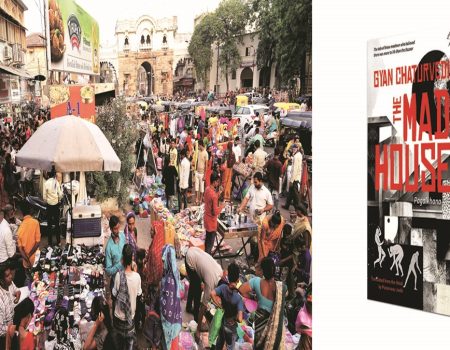Wendy Erskine’s short story collections, (2018) and (2022) have rightly drawn much praise.
This novel, , is loosely set around the sexual assault of a young woman which immediately brought to mind the traumatic 2018 Belfast rugby rape trial where all the defendants were acquitted.
However, the sexual assault is more of a connective tissue between the characters rather than the engine house for the plot.
Misty Johnston, a young working-class girl is raped at a house party by three privileged 18-year-olds Rami, Chris, and Line-Up (real name Lyness) who know her to different degrees. She thinks they are her friends.
She has a subscription-based account, similar to OnlyFans, called The Benefactors or Bennyz, where she charges men for access to adult content. However, she mainly talks to lonely Mike in Wyoming.
This account, she fears, will potentially be held against her in the aftermath of the sexual assault, and it is one of the first things the victim-blaming mothers note when minimising the abuse of their sons.
Erskine makes her point.
Working-class women, even ones as endearing and in some ways as innocent as Misty, even though she sells a bit of hash to friends and writhes around on her bed for middle-aged men online, are judged.
We meet the boys’ mothers, who are more prominent in the story than the boys themselves.
Frankie, a cold and glamorous stepmother to Chris, grew up in care and worked as a high-end escort.
She is now married to a tech millionaire. She adopts a accent to conceal her origins.
The widowed Miriam, the warmest of the mothers, whose son Rami seems the most sympathetic, and Bronagh, the hypocritical social justice warrior, who is the only character that Erskine comes close to judging and is mother to Line-Up.
Casual misogyny and classism abound.
Although Misty’s grandmother, Nan D, is a hilarious and tough matriarch, taxi driver Boogie, Misty’s stepfather, is the moral heart of the story.
He tells us: “Just getting through the day is the basic objective.”
In some ways, he is the saddest character for me; he was once brilliant at art, but that part of him is entirely submerged.
But maybe that’s projection because he’s a loving and stable father and functioning.
Without any spoilers, the novel does not head where you think it will, namely, ending in a high-stakes trial, and it is fresher for that.

Erskine handles the thorny issue of consent brilliantly.
“There was absolutely nothing to give me, or us, any indication that it wasn’t what everyone wanted. Seriously.”
“Some young girl, round one, had sex with three guys; round two, had second thoughts.”
“They shouldn’t have presumed anything about what they were doing. But no one should presume anything at any point about anybody.”
“Do I think this, durationally, was entirely nonconsensual? No. Do I think this durationally was entirely consensual? No.”
She offers us diverse perspectives and even contradictions within those views.
This allows for a nuanced portrayal of motivations and a subtle exploration of what truth even means, often when characters themselves are unaware of the truth.
Erskine plays with form, interspersing third-person chapters with unattributed first-person vignettes.
These mini talking heads snippets work. Sometimes, they illuminate the key story, but more often add depth and colour, painting the wider Belfast society that spans every social stratum.
It’s a stand-out debut. In some weird way, maybe it’s the cacophony of voices, but Jeffrey Eugenides kept popping into my head.
I’d highly recommend this vibrant, sometimes hilarious, at times bleak novel set in Belfast, featuring a rich cast of distinctly ‘Erskinesque’ characters.








No Comment! Be the first one.